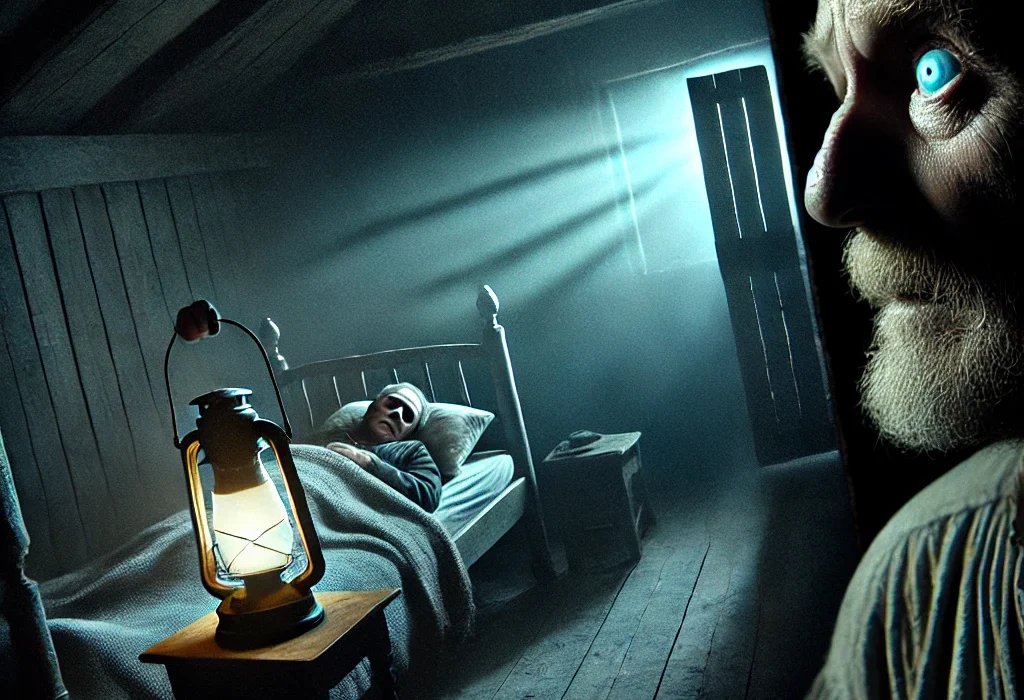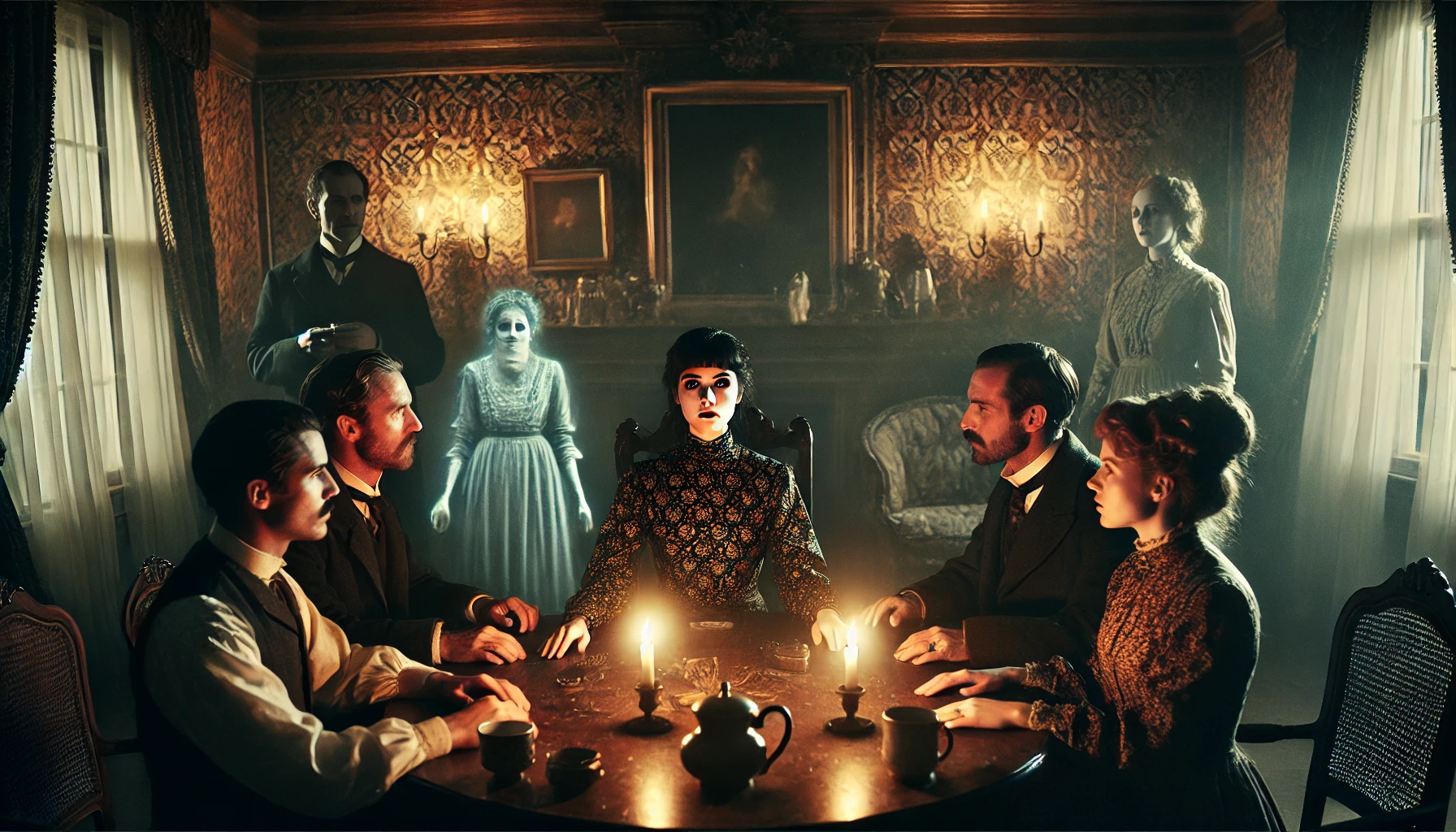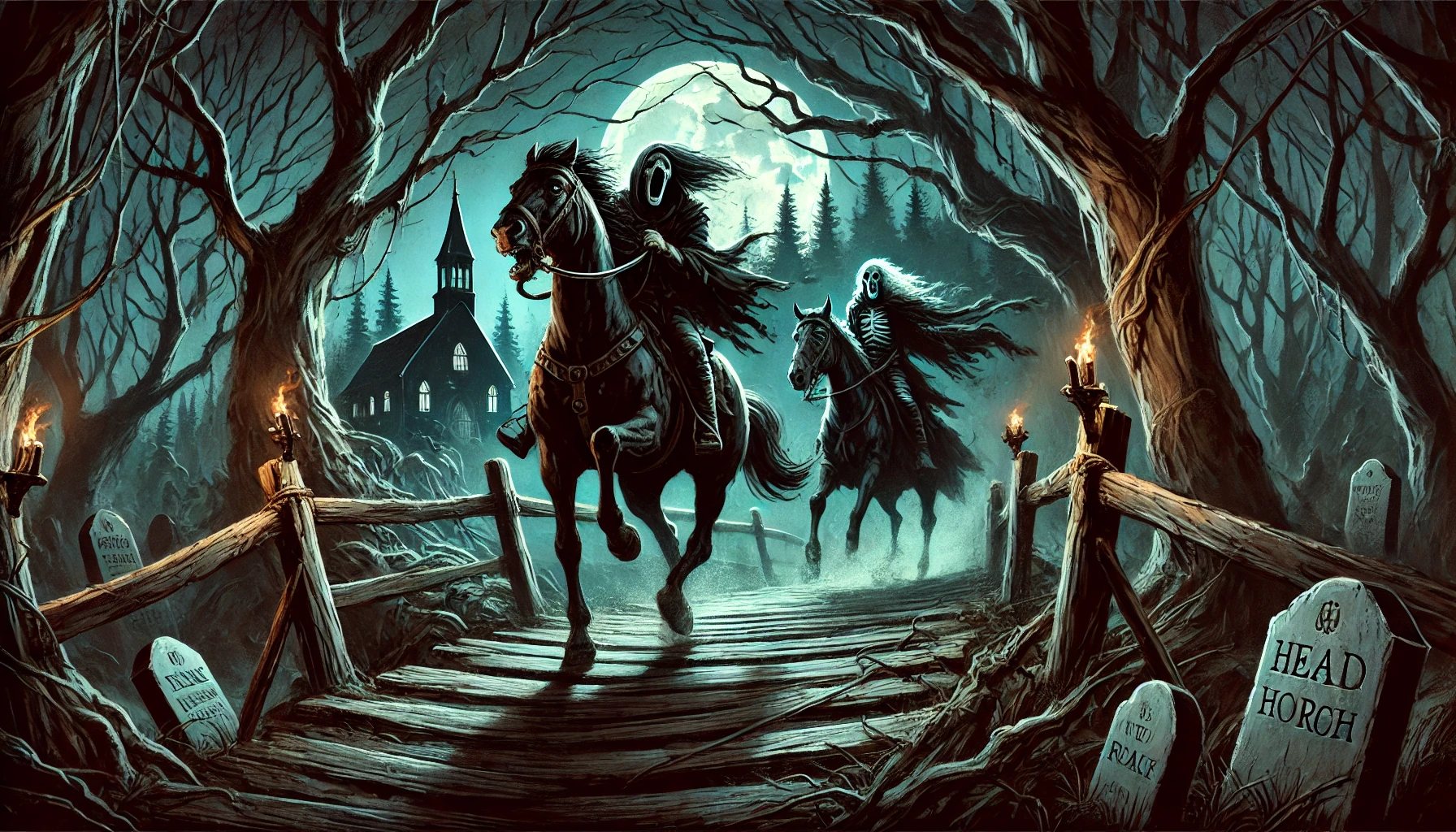The Tell-Tale Heart, written by Edgar Allan Poe, was first published in 1843. It is a classic short story from Poe’s collection of macabre fiction, known for exploring psychological horror and madness. This tale centers around an unnamed narrator’s descent into insanity as he becomes obsessed with the idea of murdering an old man, driven solely by the disturbing appearance of the man’s “vulture eye.”
Plot Summary
The night was quiet, and in that stillness, a man sat alone, tormented by the thought that everyone considered him mad. Yet how could he be mad, he asked himself, if he could recall every detail so vividly, if he could recount every moment with such precision? His senses were sharper than ever, particularly his hearing. He could hear everything—the rustle of leaves outside, the creak of the old house, even the faint sounds of life and death that others could not perceive.
And it was because of these heightened senses that his obsession with the old man’s eye grew stronger each day. He loved the old man. There was no reason to hate him, and he had never been wronged by him. It wasn’t the old man himself that filled him with dread, but that eye—the eye that looked at him like that of a vulture. Pale, blue, with a thin veil across it, that eye sent shivers through his soul. It haunted him, unnerved him, until the thought of it was unbearable. He knew he had to rid himself of it, and the only way was through the old man’s death.
Night after night, at midnight, he crept into the old man’s room. He moved so slowly, so carefully, that even a watch’s minute hand moved faster than he did. Each night, he opened the door, just enough to slip his head through. He would stand there for an hour, observing, watching. But the old man’s eye was always closed, and without that eye, the narrator felt no malice. He couldn’t act without seeing it, that dreadful eye that seemed to pierce through his soul.
For seven nights, he stalked the old man in his sleep, but the eye remained shut. He was patient, though. It was not the old man he wished to harm—it was that eye. His heart raced each time he peeked into the room, but he held himself back. He was careful, precise, cunning. Madmen did not act with such forethought, he reminded himself.
But on the eighth night, something was different. He could feel it as soon as he entered the room. The old man stirred, perhaps sensing the presence of something sinister in the darkness. A tiny noise escaped from the narrator, just a soft chuckle of triumph. The old man sat up suddenly in his bed, and called out into the darkness, asking if anyone was there. The narrator stood still, his heart pounding in his chest. For a long time, neither of them moved. The darkness was thick, the air heavy with silence, except for the old man’s shallow breathing.
The narrator waited, frozen, for an hour. The old man did not lie down again, and his fear was palpable, growing in the stillness. The narrator could feel it too, that tension in the air, the creeping terror that clung to the old man as he sat, waiting, in the dark. Slowly, very slowly, the narrator opened the lantern he held. A single thin ray escaped from it, falling directly on the old man’s eye—the eye that was wide open now, staring back at him.
The narrator’s blood boiled. The eye was upon him, that horrible, vulture-like eye that seemed to see through him. His fury built up inside him, but he remained still, watching, calculating. Then, in the silence, he heard it—the sound of the old man’s heart beating. It was faint at first, a dull thud that echoed through the room, but as the narrator stood there, the sound grew louder and faster. The old man’s terror was growing, and the sound of his beating heart filled the narrator with a strange sense of power.
The heart pounded louder and louder, until it seemed to reverberate off the walls, pulsing with a rhythm that matched the narrator’s growing madness. He couldn’t wait any longer. The fear of the neighbors hearing that sound overwhelmed him, and with a sudden shout, he threw open the lantern, leaped into the room, and dragged the old man to the floor. In an instant, he smothered the old man beneath the heavy bed.
When the deed was done, the narrator smiled in satisfaction. The eye would trouble him no more, for the old man was dead. But the heart—ah, that heart—still beat, faintly, from beneath the bed. He waited, holding his breath, and after what felt like an eternity, it finally stopped. The silence was complete.
He worked quickly, knowing that dawn was approaching. With care, he dismembered the body, removing the head, arms, and legs. There was no blood, no mess—he had been too clever for that. He lifted the floorboards and placed the dismembered body beneath them, then replaced the boards with such skill that no one would ever suspect a thing. The room looked as it had before—perfect, undisturbed.
It was just as he finished, around four in the morning, that he heard a knock at the door. Three policemen had arrived, having been alerted by a neighbor who heard a scream. But the narrator was calm. He invited them in, explaining that the scream had been his own—a mere nightmare. The old man, he said, was away, and there was nothing to fear. He led them through the house, confident that his cleverness would be his salvation.
In fact, he felt so secure in his triumph that he invited the officers to sit in the very room where the body lay hidden beneath the floorboards. He placed his chair directly over the spot, smiling to himself as the officers sat and chatted. For a time, all seemed well, but then a sound began to fill the room—a low, dull, rhythmic sound. The narrator’s head began to ache, and as he talked with the officers, the sound grew louder, pounding in his ears. It was the old man’s heart, beating again, louder and louder.
The noise became unbearable. He tried to talk over it, to distract the officers, but the sound filled his mind. Could they hear it too? Were they mocking him? He could no longer bear the tension, the ringing in his ears, the infernal beating of that heart. In a frenzy, he screamed, confessing his crime, and tore up the floorboards to reveal the old man’s dismembered body beneath.
The beating heart had betrayed him.
Main Characters
The Narrator: The protagonist and unreliable narrator of the story. His descent into madness is conveyed through his obsessive, erratic behavior and his repeated insistence that he is not mad. His intense paranoia and guilt drive the narrative as he struggles to conceal his crime.
The Old Man: The victim of the narrator’s growing madness. Though little is said about his background or personality, the old man’s “vulture eye” becomes the object of the narrator’s obsession, leading to his murder.
The Policemen: These characters appear near the end of the story after the old man’s murder. They are calm and unsuspecting, representing the outside world’s normalcy, which contrasts with the narrator’s growing internal chaos.
Theme
Madness and Guilt: One of the central themes of The Tell-Tale Heart is the narrator’s mental instability. Although he claims to be sane, his obsessive actions and delusions reveal his madness. The story delves into how guilt can manifest in the human psyche, particularly when he hears the incessant beating of the old man’s heart after the murder, symbolizing his deep-seated remorse.
Time and Mortality: Time plays a critical role, especially in the form of the ticking sound that echoes through the narrator’s conscience. This motif suggests both the inevitable approach of death and the narrator’s internal clock ticking down to his confession. The beating heart becomes synonymous with the ticking of a clock, driving the suspense.
The Power of Perception: The narrator’s heightened senses, especially his acute hearing, emphasize how perception can be distorted by mental illness. His focus on the old man’s eye—rather than any actual wrongdoing—illustrates how skewed his view of reality has become, with his madness rendering him unable to separate perception from reality.
Writing Style and Tone
Edgar Allan Poe’s writing style in The Tell-Tale Heart is both intense and claustrophobic. His use of first-person narration plunges the reader directly into the disturbed mind of the protagonist, creating an intimate, almost suffocating atmosphere. Through short, choppy sentences and urgent repetitions, Poe conveys the narrator’s heightened anxiety and nervous energy. The pacing mirrors the protagonist’s escalating tension and paranoia, particularly when describing his meticulous planning and execution of the murder.
The tone of the story is dark, eerie, and unsettling. Poe masterfully evokes suspense by employing vivid descriptions of the narrator’s feelings and actions. The gradual build-up of madness, combined with the macabre focus on death and the supernatural, creates a tone of psychological horror that grips the reader. Poe’s skillful manipulation of sound—such as the pounding heartbeat and the stillness of the night—heightens the tension and evokes a profound sense of dread.
We hope this summary has sparked your interest and would appreciate you following Celsius 233 on social media:
There’s a treasure trove of other fascinating book summaries waiting for you. Check out our collection of stories that inspire, thrill, and provoke thought, just like this one by checking out the Book Shelf or the Library
Remember, while our summaries capture the essence, they can never replace the full experience of reading the book. If this summary intrigued you, consider diving into the complete story – buy the book and immerse yourself in the author’s original work.
If you want to request a book summary, click here.
When Saurabh is not working/watching football/reading books/traveling, you can reach him via Twitter/X, LinkedIn, or Threads
Restart reading!








